Search Results for: Vertebrates
Skip to resultsCan’t find what you’re looking for? Visit our FAQ page.
1,539 results for: Vertebrates
-
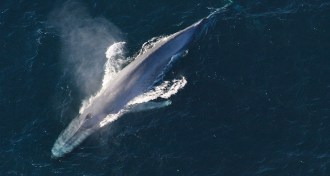 Animals
AnimalsMost blue whales are ‘righties,’ except for this one move
Though many blue whales tend to be “right-handed” when hunting for krill, one specific barrel roll move requires a lefty twist.
-
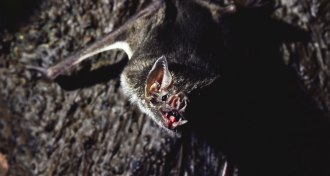 Animals
AnimalsScary as they are, few vampires have a backbone
Researchers speculate on why there are so few vampires among vertebrates.
By Susan Milius -
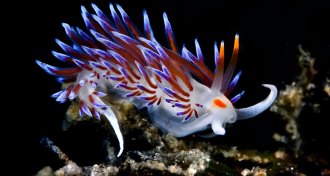 Animals
AnimalsThis sea slug makes its prey do half the food catching
Nudibranchs’ stolen meals blur classic predator-prey levels.
By Susan Milius -
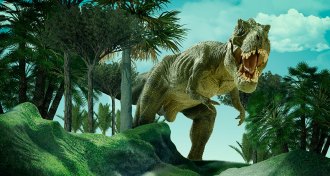 Paleontology
PaleontologyT. rex’s silly-looking arms were built for slashing
Tyrannosaurus rex may have used its small arms for slashing prey.
-
 Life
LifeDefining ‘species’ is a fuzzy art
Here's why scientists still don't agree on what a species is.
By Susan Milius -
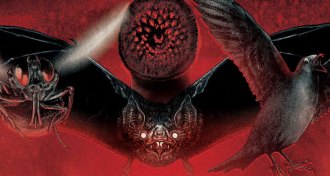 Animals
AnimalsBeing a vampire can be brutal. Here’s how bloodsuckers get by.
Blood-sucking animals have specialized physiology and other tools to live on a diet rich in protein and lacking in some nutrients.
By Susan Milius -
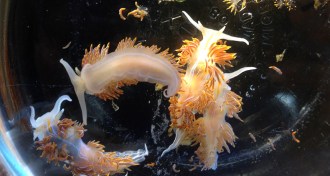 Oceans
OceansHere’s a breakdown of the animals that crossed the Pacific on 2011 tsunami debris
Hundreds of marine animals from Japan have washed up on U.S. beaches since the destructive 2011 earthquake and tsunami.
-
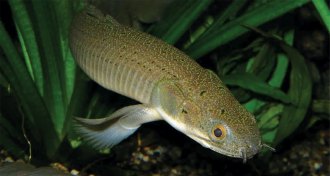 Animals
Animals3-D scans of fossils suggest new fish family tree
Analysis of specimens from China implies ray-finned fishes evolved later than previously thought.
-
 Plants
PlantsJosé Dinneny rethinks how plants hunt for water
Plant biologist José Dinneny probes the very beginnings of root development, which may have important implications for growing food in a changing climate.
By Susan Milius -
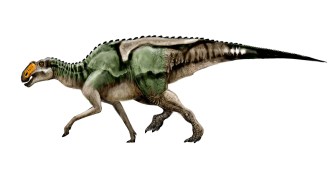 Paleontology
PaleontologyShhhh! Some plant-eating dinos snacked on crunchy critters
Scientists studying dinosaur poop found that some duck-billed dinos cheated on their vegetarian diets by snacking on crustaceans.
-
 Paleontology
PaleontologyWoolly rhinos may have grown strange extra ribs before going extinct
Ribs attached to neck bones could have signaled trouble for woolly rhinos, a new study suggests.
By Susan Milius -
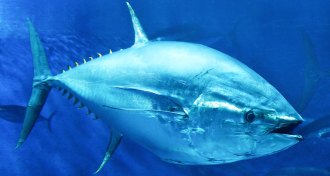 Animals
AnimalsNewly discovered lymph hydraulics give tunas their fancy moves
There’s still some anatomy to discover in fishes as familiar as bluefin and yellowfin tunas.
By Susan Milius